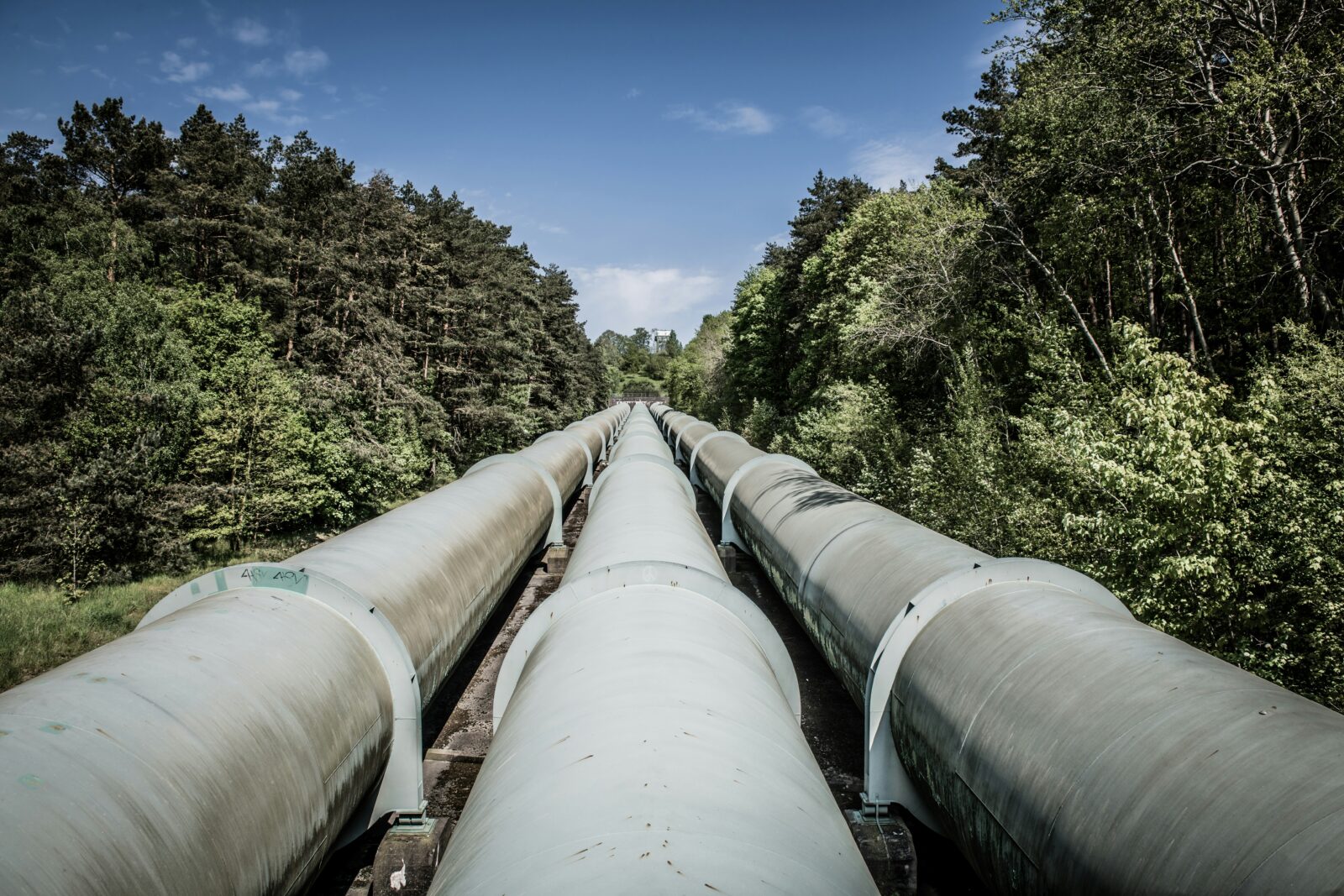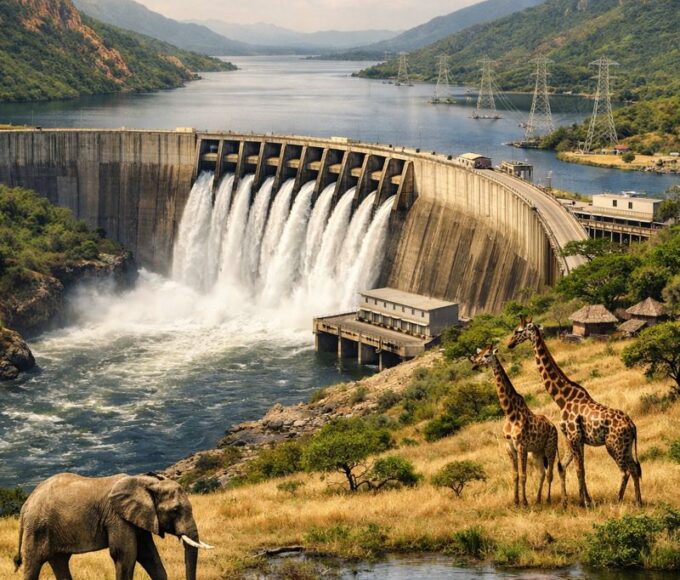- Home
- Features
- Startup Zone
- Projects
- Policies
- Shop
- Policies
- Projects
- Startup Zone
- Country Spotlight
- Analysis
- Tech
- Policies
- Projects
- Startup Zone
- Country Spotlight
- Analysis
- More
- Beyond the Kalashnikov: Africa’s Shift Toward Technology-Driven Warfare
- Afrail Express: Uniting a Continent on Rails
- AFRICA’S ENERGY CORRIDORS: CONNECTING POWER, PEOPLE, AND PROSPERITY
- Startup Lions Campus: Empowering Kenya’s Digital Generation
- L’Art de Vivre’s Le Paradis de Mahdia: Tunisia’s Model for Sustainable Luxury
- The Lobito Corridor: Rewiring Africa’s Trade Arteries Through Strategic Infrastructure
- AFRICA’S GREEN ENERGY TRANSITION: A BEACON OF HOPE FOR CLIMATE ACTION
- Dangote Refinery: Showcasing Africa’s Project Success Story
- AFRICA GREEN ECONOMY: ALL YOU NEED TO KNOW
- The Most Important Amicus Brief in the History of the World
- The Rise of Indigenous UAVs: Africa’s Drone Capabilities in Warfare and Surveillance
- AFRICA’S LARGEST OIL PRODUCERS: A COMPREHENSIVE OVERVIEW
- Beyond the Kalashnikov: Africa’s Shift Toward Technology-Driven Warfare
- Afrail Express: Uniting a Continent on Rails
- AFRICA’S ENERGY CORRIDORS: CONNECTING POWER, PEOPLE, AND PROSPERITY
- Startup Lions Campus: Empowering Kenya’s Digital Generation
- L’Art de Vivre’s Le Paradis de Mahdia: Tunisia’s Model for Sustainable Luxury
- The Lobito Corridor: Rewiring Africa’s Trade Arteries Through Strategic Infrastructure
- AFRICA’S GREEN ENERGY TRANSITION: A BEACON OF HOPE FOR CLIMATE ACTION
- Dangote Refinery: Showcasing Africa’s Project Success Story
- AFRICA GREEN ECONOMY: ALL YOU NEED TO KNOW
- The Most Important Amicus Brief in the History of the World
- The Rise of Indigenous UAVs: Africa’s Drone Capabilities in Warfare and Surveillance
- AFRICA’S LARGEST OIL PRODUCERS: A COMPREHENSIVE OVERVIEW
- Beyond the Kalashnikov: Africa’s Shift Toward Technology-Driven Warfare
- Afrail Express: Uniting a Continent on Rails
- AFRICA’S ENERGY CORRIDORS: CONNECTING POWER, PEOPLE, AND PROSPERITY
- Startup Lions Campus: Empowering Kenya’s Digital Generation
- L’Art de Vivre’s Le Paradis de Mahdia: Tunisia’s Model for Sustainable Luxury
- The Lobito Corridor: Rewiring Africa’s Trade Arteries Through Strategic Infrastructure
- Startup Zone
Top Insights
Pipeline Politics: The Future of Africa’s Oil and Gas Infrastructure

Africa’s oil and gas sector is undeniably at a pivotal crossroads, with numerous pipeline initiatives poised to reshape the continent’s energy landscape. However, as these infrastructure projects advance, they must navigate the intricate balance between economic growth and climate change commitments. An inclusive energy transition is essential for ensuring that Africa’s development aligns with the broader sustainability goals of the planet.
The Promise and Perils of Pipeline Development
The future of Africa’s oil and gas infrastructure is characterised by a complex interplay of political, economic, and environmental factors. While the continent’s substantial hydrocarbon reserves present a significant economic opportunity, achieving sustainable development amidst the necessary transition to a low-carbon future remains a daunting challenge. Key areas of focus include fostering investments in infrastructure, enhancing resource management, and ultimately ensuring that the needs of local populations and global energy markets are met.
READ ALSO: The Project Tracker: What’s New, Delayed, and Accelerated in Africa’s Pipeline
Across Africa, various pipeline projects illustrate this burgeoning potential. Some projects, designed as intricate networks, weave through deserts and jungles, transforming natural landscapes into corridors of profit. For instance, Europe’s increasing dependence on oil and gas—intensified by geopolitical tensions such as the Russia-Ukraine conflict—has led several African nations to expedite pipeline construction. Such infrastructural ambitions are exemplified by initiatives like the $10 billion East African Crude Oil Pipeline, backed by the China National Offshore Oil Corporation (CNOOC).
Despite the prospects, many of these ambitious projects face hurdles. Historical collaborations between Nigeria, Niger, and Algeria to export gas through a proposed 4,128 km pipeline have yet to yield tangible results, highlighting the risks associated with regional instability and investor hesitancy. Similarly, the recent military coup in Niger poses significant obstacles for investors and stakeholders involved in such ventures.
Bridging Geopolitical and Economic Objectives
As discussions surrounding the Nigeria-Morocco gas pipeline reveal, the convergence of geopolitics and economics is crucial. Emerging as a linchpin for energy cooperation among West African nations, this $25 billion endeavour aims to connect Nigeria’s vast reserves with Morocco and many neighbouring countries. The potential to foster regional collaboration while addressing pressing energy demands highlights the need for a strategic approach to energy infrastructure development.
Given the project’s complexity, ensuring security throughout its length will require extensive cooperation among involved nations. A collaborative strategy merging governmental, corporate, and security interests will be essential for overcoming the multifaceted challenges that accompany cross-border energy projects.
The Imperative of Responsible Investment
The future of Africa’s oil and gas sector is not without its anxieties, particularly in light of the growing emphasis on climate responsibilities. Investors must grapple with the potential for reduced fossil fuel demand as alternatives like electricity, hydrogen, and other renewables become more mainstream. While natural gas may offer an immediate solution to bridging Africa’s energy gap, stakeholders remain cautious about the long-term sustainability of fossil fuels against a backdrop of global decarbonisation efforts.
Nevertheless, projections indicate that oil demand in the near to medium term remains robust, particularly as developing regions continue to evolve. New hydrocarbon producers such as Uganda are positioning themselves to enter global markets. Although in 2025, Uganda anticipates exporting oil, the accompanying infrastructure, such as the Uganda-Tanzania crude oil pipeline, reflects both regional ambition and associated financial risks.
China’s Role in Africa’s Hydrocarbon Debate
Chinese investment in African pipeline projects underscores a broader strategy that transcends mere economic benefit. Chinese national oil companies are heavily involved in several initiatives—from oil extraction in Uganda to extensive LNG projects in Mozambique—highlighting a dual motive: securing energy resources and fostering economic ties. While this involvement raises questions about “reverse colonialism,” African nations leverage competition among global players to their advantage. Noteworthily, Western oil companies still maintain a significant presence, making the situation highly fluid.
Navigating Uncertainty: Future Considerations
The alignment of energy initiatives with climate objectives poses complex questions for stakeholders. If momentum continues to favour oil and gas, how will countries preserve their standing within a saturated market landscape? Navigating this uncertainty necessitates fostering partnerships, securing long-term contracts pre-construction, and promoting value addition in energy projects. Public-private partnerships can mobilise the necessary capital to scale critical infrastructure while alleviating investment risk.
Moreover, an ecosystem supporting energy diversification is essential for Africa’s developmental aspirations. Investment in renewable sectors, combined with traditional hydrocarbon projects, may best accommodate the continent’s drive towards both economic resilience and environmental stewardship. The commitment of major players like TotalEnergies to pursue cleaner operations and reduce emissions signals a balancing act between current energy demands and the need for future sustainability.
A Vision for Energy Security
As Africa stands at the threshold of potential energy transformation, the concept of energy security will be paramount. Leaders must strategically plan to optimise their hydrocarbon resources to not only meet local needs but also align themselves with global energy transitions. The blend of existing projects, ongoing negotiations, and emerging proposals reveals a continent ripe for opportunity.
The African Energy Chamber emphasises the importance of advocating for investment-friendly policies, alongside collaborative efforts for financing and technology, to ensure large-scale projects like the East African Crude Oil Pipeline come to fruition. Creating an environment that not only attracts global capital but also meets continental energy needs while addressing climate commitments represents a formidable yet vital challenge for Africa’s future in the oil and gas sector. As stakeholders gather to assess these dynamics, one thing is clear: intelligent and inclusive planning will define the success of Africa’s hydrocarbon sector amidst evolving global energy landscapes.
Recent Posts
Related Articles
Africa’s Mega Dams: Balancing Development and Environmental Needs
Large-scale hydropower dams have become central to Africa’s development strategy as governments...
ByafricaprojectJanuary 29, 2026AfCFTA and Its Impact on Africa’s Infrastructure Policies
The African Continental Free Trade Area (AfCFTA), which came into force in...
ByafricaprojectSeptember 25, 2025The Battle Over Energy Subsidies in Africa: Who Wins and Who Loses?
Energy subsidies have long been a contentious topic in African economies, representing...
ByafricaprojectSeptember 24, 2025The Impact of ESG Policies on Africa’s Oil Sector
In recent years, Environmental, Social, and Governance (ESG) considerations have surged in...
ByafricaprojectSeptember 19, 2025













